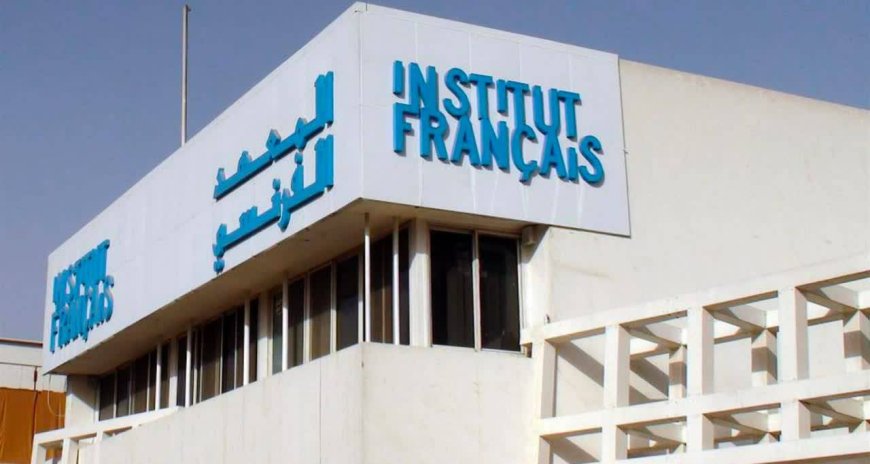France's Cultural Diplomacy in Iraq: Establishing Connections and Influencing Cultural Transformation
France's Cultural Diplomacy in Iraq: Establishing Connections and Influencing Cultural Transformation

In the early 20th century, France recognized the significance of cultural diplomacy as a means to establish connections with other nations through language, culture, and art. This approach remained consistent despite changes in administrations and republics. In 2022, the "Institut de France," a leading institution for French cultural diplomacy, celebrated its centennial. The institute's current president, Eva Nguyen Binh, graduated from Sciences Po, a renowned French political college, and studied foreign relations at Georgetown University. She has French-Thai roots and a background in French political diplomacy, including serving as the French ambassador to Cambodia, which highlights the political importance of this seemingly cultural institution in advancing French political objectives in both countries.
Nguyen Binh emphasizes the significance of collaboration with local partners in the institute's operations across various countries. According to Nguyen Binh, the approach of the Institut de France is not authoritative or top-down, but rather one of partnership and inclusivity. The institute engages with diverse community members, including local authorities, artists, NGOs, entrepreneurs, and representatives of civil society. Idea exchange holds a central place, and the institute invites artists to visit France to broaden their cultural horizons. These artists become ambassadors of France upon returning to their home countries.
The institute also provides special support to artists from Francophone countries through programs aimed at promoting the French language. France's diversity is further promoted through the Institut de France, allied organizations, embassy cooperation services, and bilateral cultural centers worldwide. The French Institute has had a presence in Iraq since 2009, with branches in Baghdad and Erbil. Its mission is to promote French culture, art, and language, attract artists and Iraqi intelligentsia, and instill Iraqi society with Western-oriented ideologies, with a special focus on youth and women.
The Institut de France in Baghdad, which temporarily closed between 2014 and 2017, is now one of the few foreign cultural centers offering regular cultural programs. Since 2021, the French Institute in Erbil has collaborated with the Goethe Institute of Iraq to present joint cultural programs. Additionally, a French-Iraqi cultural center operates on the campus of Mosul University. The former manager of the Institut de France's Erbil branch, Anis Banipal, who recently assumed her position, highlighted the disruptive nature of her leadership as a woman in a region where this goes against local norms. In a video clip of a concert held in Erbil's historic fortress, Banipal expressed her satisfaction in witnessing the people of Sulaymaniyah and Erbil undergoing a cultural metamorphosis since 2019, when she assumed her office, singing and dancing.
On January 22, 2023, the foundation stone for the French-German Cultural Institute was laid in Erbil, in the autonomous region of Iraqi Kurdistan, to commemorate the 60th anniversary of the Elysée Treaty. Situated near the Erbil Citadel, the institute aims to foster intercultural exchanges. It offers language courses in French, German, Kurdish, and Arabic, as well as cultural activities to familiarize people, especially youth, with French and German cultures. The cultural institutions of France and Germany are among the fifteen priority projects outlined in the Treaty of Aix-la-Chapelle, signed on January 22, 2019, which demonstrates the political will of both Berlin and France to expand their cooperation and global influence. In terms of academic collaboration, a jointly funded scholarship program signed in 2019 between France and Iraq enables researchers, Ph.D. students, and master's students to benefit from inter-university exchanges in France. The Erbil branch of the French Institute for the Near East (IFPO) significantly contributes to academic cooperation with Iraqi institutions, particularly in the fields of humanities and archaeology. Enhancing French language education is a crucial aspect of bilateral cooperation between Paris and Baghdad.
Currently, around one hundred schools in Iraq offer French as a second foreign language, with approximately sixty high schools making it compulsory. Additionally, around 2,000 students study French at the primary level. To develop French language education in Iraq, the French Ministry of Foreign Affairs has prepared a continuous training plan for Iraqi secondary school teachers. The French Embassy in Baghdad also supports curriculum changes in the French departments of public universities at the undergraduate level. Furthermore, France has entered the publishing industry by releasing children's and adult books as part of the cultural transformation process. Cultural and artistic awards, as well as participation in art festivals, serve as avenues to influence the tastes and cultural output of Iraqis. Ultimately, cultural cooperation plays a significant role in France's relationship with Iraq. France aims to establish enduring intellectual connections in this traditional and multicultural country. By exerting influence on Iraq's political decisions, Paris hopes to gradually integrate Iraqi-trained individuals into its cultural and political spheres, thereby solidifying its presence and influence in Iraq.













































